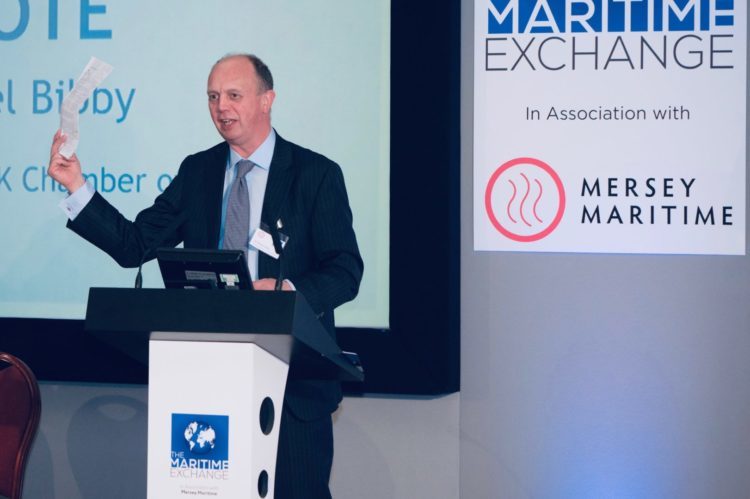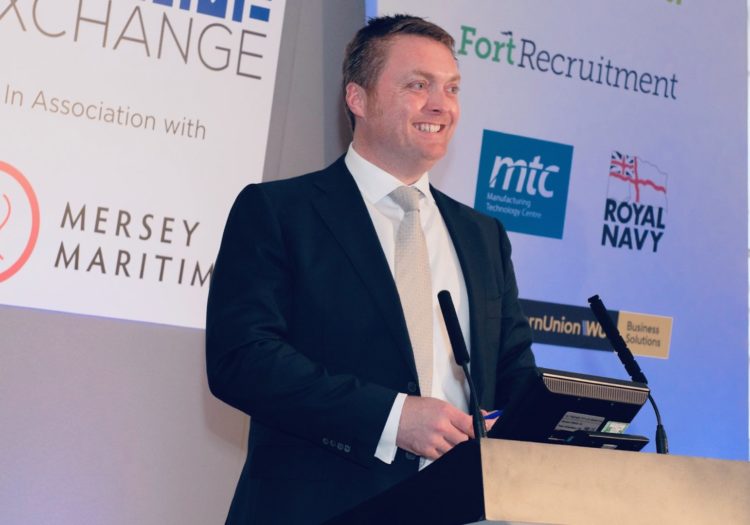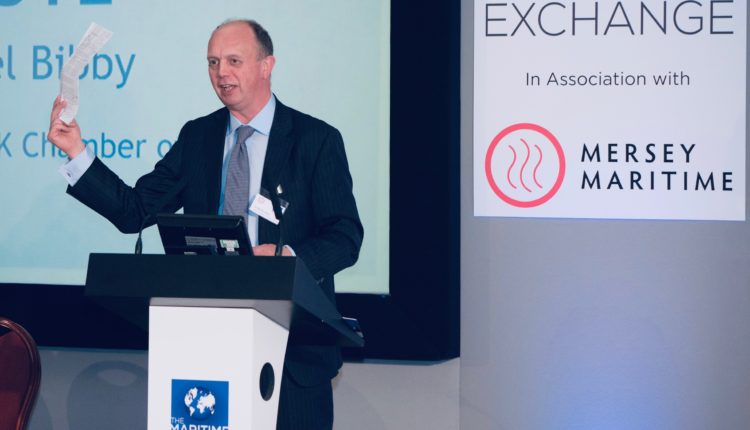‘We need Brexit certainty’, says maritime leader Sir Michael Bibby in plea to politicians
Sir Michael Bibby, president of UK Chamber of Shipping and former CEO of Bibby Group, was speaking at a major national industry conference held at Liverpool. Tony McDonough reports

One of Merseyside and the UK’s biggest maritime sector figures has urged UK politicians to offer “certainty” on the UK’s imminent departure from the EU.
Sir Michael Bibby, president of UK Chamber of Shipping and former chief executive of Liverpool maritime giant Bibby Group, was speaking at a major national industry conference held at Liverpool Town Hall.
Organised by and in association with industry body Mersey Maritime, the Maritime Exchange was developed in response to the Government’s Maritime 2050 report that sets out the long-term strategy for the UK maritime sector.
Deadline looms
Addressing an audience of some of the biggest players in the UK’s £37bn maritime sector, Sir Michael said UK business has made its feelings known to the Government over Brexit but, with next deadline of October 31 now approaching, it was now up to politicians to sort it out.
He said: “All the business lobbying that can be done has been done. It is now up to the politicians to make the decisions that will give us some certainty.”
Sir Michael also said the Maritime 2050 strategy gave the UK maritime sector “a serious opportunity to grow”, adding that his family’s Bibby Group had been through many periods of momentous change since it was founded more than 200 years ago.
He explained: “Change is really important. Bibby has been through a number of cycles in our history where we have struggled to survive. But we are still here today and we employ 4,000 people. Maritime 2050 has given us a clear direction on how we can change.”
Young people
He also talked about the importance to both retaining talent and experience and persuading young people to consider careers in maritime. Sir Michael added: “We need to work together to attract and retain people. We need great people from a diverse range of backgrounds coming into this industry.
“The average age of HGV drivers in the UK is 58 and I think that is similar for seafarers. There was a period of time when we weren’t recruiting people so we have to do that – but we also have to retain that experience.”
Sir Michael also talked about the importance of embracing the latest technology, particularly when it comes to meetings ambitious environmental targets. And he said the fact the Liverpool city region’s £4bn maritime cluster was now regarded as the most successful in Europe was “bloody fantastic”.
Industry figures
Helen Kelly, managing editor and head of communications at Nautilus and former editor-in-chief at Lloyds List, chaired the all-day conference, which comprised a number of sessions featuring a line-up of expert and high-profile maritime industry figures.
Laura Marquis, head of strategy and partnerships in the maritime policy division at the Department for Transport, and one of the authors of Maritime 2050, opened the session and the strategy document formed the basis for the panel discussions.
Technology and sustainability were big themes throughout the day with discussion around the use of autonomous vehicles and artificial intelligence acknowledging that, while such innovations were transformative for the sector, more collaboration around development was essential to ensure technology could be utilised effectively.

Sarah Kenny, chief executive of BMT and vice-chair of Maritime UK said major technology projects could not succeed without “leadership and vision” and “dialogue and collaboration” and urged people to leave the legal and IP issues until last.
Alan Tinline, head of environment at ports operator ABP, said shifting the maritime sector towards a net zero carbon world would be a huge challenge. He explained: “What keeps me awake at night is air quality and greenhouse emissions.
“Net zero emissions will mean big changes for us in the UK. Previously we were only talking about 30% cuts so net zero is going to be a real game-changer.”
Jobs and growth
Closing the conferences, Mersey Maritime chief executive Chris Shirling-Rooke vowed the event would return again next year and emphasised of collaboration between companies in the maritime and between the different regions across the UK.
“We are a competitive sector and sometimes we can be too competitive,” he said. “Within the regions it takes a not-for-profit honest broker, such as Mersey Maritime, to being people together.
“Ports are critical because we those tier one anchors to drive that spirit of collaboration. We need to look at how do we create more jobs and growth and how do we become more prosperous.”
Ends

